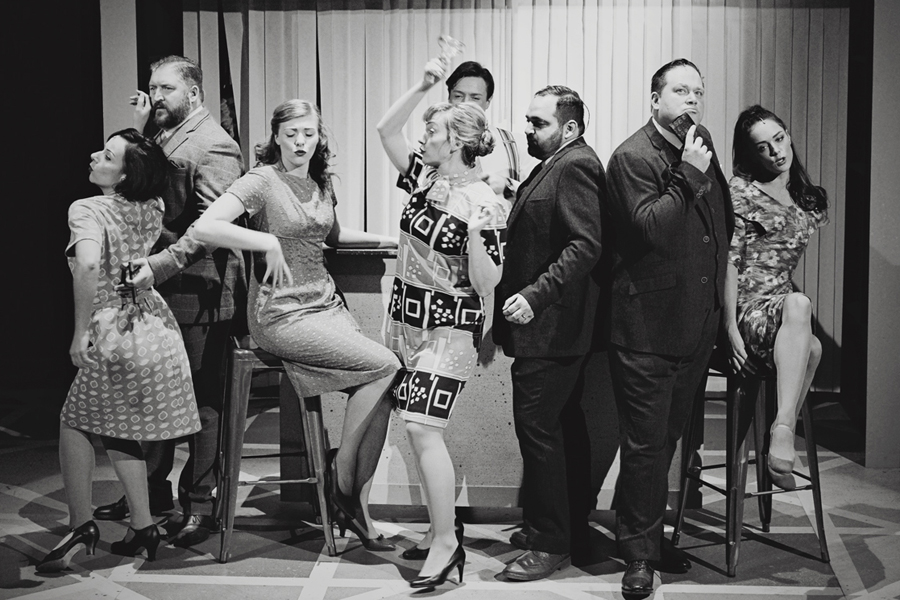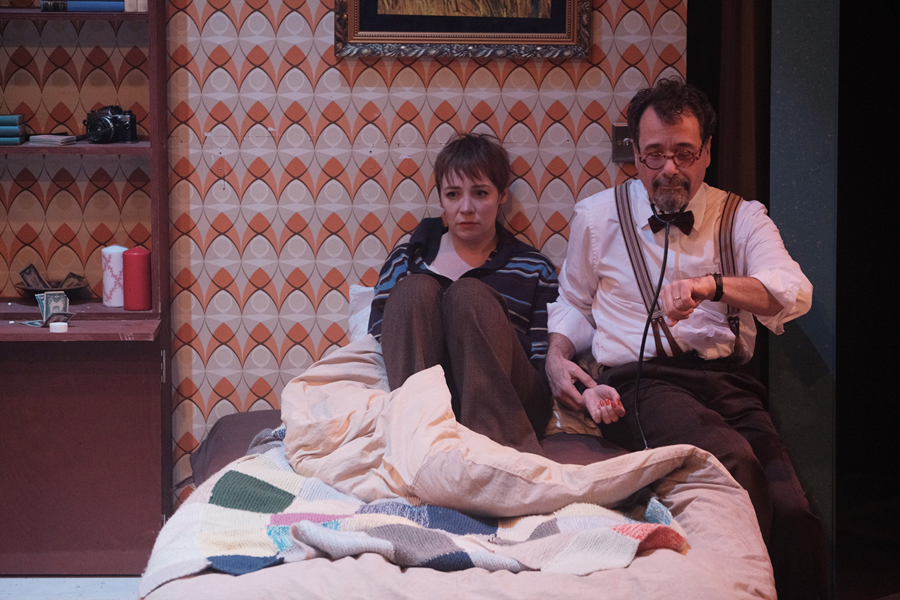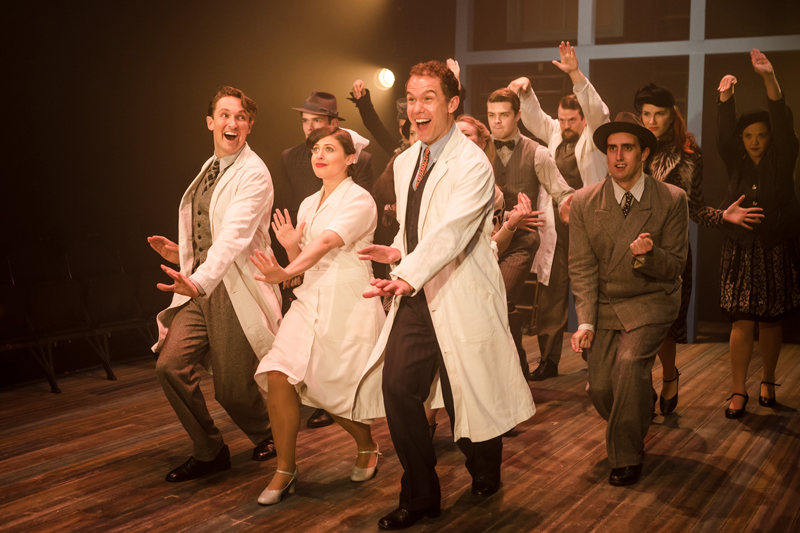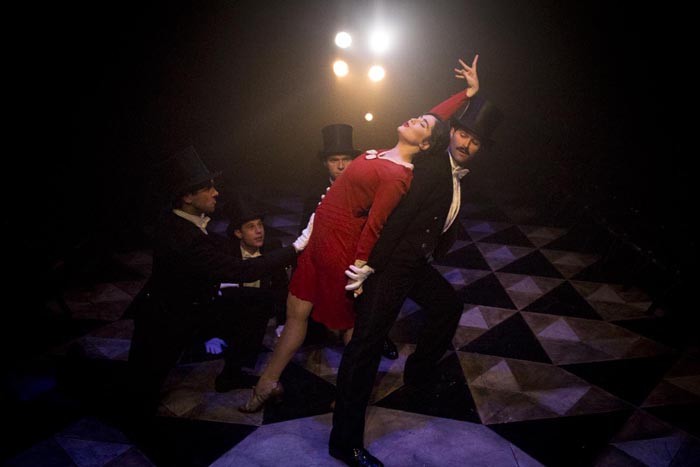 ★★★★★
★★★★★
Many musicals have varied fortunes but Grand Hotel might have the longest history. It started in 1929 as a novel and then evolved into a play by Austrian-Jewish writer Vicki Baum as Menschen im Hotel (People in the Hotel), exploring the extraordinary stories of guests and staff over one weekend in the best hotel in Berlin. It then became an academy award winning film in 1932 and in 1958, fresh from the success of Kismet, Luther Davis (who authored the accompanying book), as well as George Forrest and Robert Wright (both on lyrics duty) relocated the setting to Rome for their musical version starring Paul Muni. It opened on the West Coast to mixed reviews, straying quite a way from the original storyline, but Muni was ill and the punters wanted to see a closer version of the film so everyone decided against a Broadway opening.
Decades later, in 1989, the trio tried again, returning the show to its original setting of 1928 Berlin. Director/choreographer Tommy Tune insisted on calling in Maury Yeston (who had enjoyed huge success with the musical Nine) to add new songs and some fresh lyrics and the ensuing non-stop production of overlapping dialogue, musical numbers and dance routines encapsulated the mood of a bustling hotel. This, combined with the intersecting stories – of a fading ballerina, a debt-laden but handsome young Baron, a desperate businessman, a war-hardened doctor, a typist with Hollywood dreams and a dying Jewish bookkeeper who wants to spend his life's savings to live his final days at the hotel in the lap of luxury – propelled the show to over 1000 performances on Broadway. Yet it was a flop in London just a few years later, though it had better fortune when it was revived as a lost musical at central London's Donmar theatre in 2004.
Thom Southerland has a great track record directing big musicals in intimate spaces (think Parade, The Grand Tour and Mack and Mabel – all boasting Jewish creative involvement). Here he’s back at the Southwark Playhouse he knows so well, working seamlessly with choreographer Lee Proud to create all the bustle and elegance of a 1920s grand hotel on designer Lee Newby’s cleverly traverse set. With just a faux marble floor and a few chairs, the cast suggest the opulence of Berlin’s top hotel; and their movement quality, at the same time breathless and purposeful, works wonderfully with the soundscape of their voices raised in a musical hubbub to suggest the lives of guests and staff that intersect there.
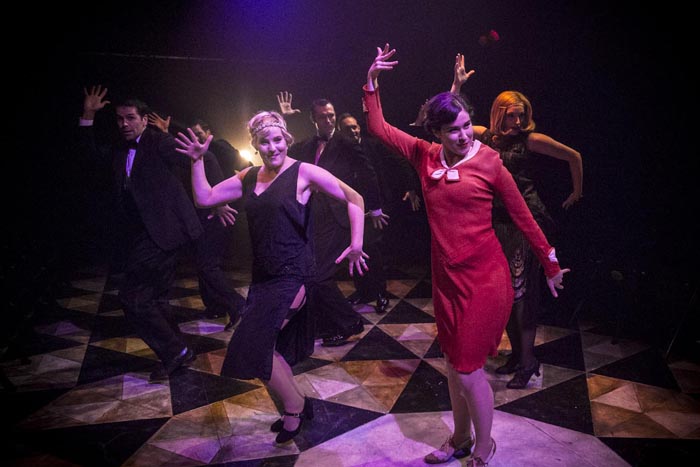
Musical Director Michael Bradley and orchestration adaptor and musical supervisor Simn Lee fully exploit a sound that is at once big, but dominated as it is by strings (two violins, a viola, cello and contrabass, plus drums and keyboards), not brassy – so it is again evocative of those grand hotels. Although the sound quality is good, it does not, of course, come from the singers, but from the amplifiers, which is a shame. But sacrificing audibility would be so much worse.
Like the narratives of the guests, the songs from Yeston and his co-creators intersect too with a powerful drive, so that at times the musical is through song, and of course they carry both narrative and characterisation. What is so impressive about the performances is the physicality of the cast and I don’t just mean their terrific dancing. Making her UK debut, Italian star Christine Grimandi plays Grushinskaya with all the lithe grace of a dancer – and just a little stiffness to betray the dancer’s age. She’s well matched by ramrod straight, whippet-slim Valerie Cutko as Raffaela, her adoring aide, hinting at her unrequited love with touching subtlety. Cutko took over the role on Broadway but her interpretation is fresh as a daisy here.
It’s easy to see why Southerland and other musical theatres love to cast Victoria Serra in roles as vivid as Flaemmchen, the typist and wannabe star who has already chosen that stage name and is prepared to do almost anything to get to Hollywood. Serra gives Flaemmchen a lovely mixture of naïve vulnerability and a hard-boiled determination to get what she wants, even if it means offering distasteful sexual favours. Plus there are lovely subtleties to her voice.
The male guests and staff also give strong performances that match the strength and urgency of their stories. At the epicentre of the play is that handsome Baron, up to his ears in gambling debts and prepared to take as many risks as Raffles the gentleman burglar to stay afloat and live the high life. Scott Garnham plays him with charm and panache – and real tenderness when he falls for the intended victim of a jewellery heist, the ageing Grushinskaya. There are some lovely plot twists that enable him to do more than one good turn, despite his dishonesty, which Garnham clearly relishes. Among the recipients of his kindness are assistant concierge Erik, who spends the entire musical in anguish at being unable to attend his wife’s protracted labour and Otto Kringelein, that terminally ill young Jew determined to make the most of his last days. It would be so easy for these characters to spill over into mawkishness, but instead Jonathan Stewart as Erik and George Rae as Otto give perfomances that are both are rounded and sympathetic.

Jacob Chapman is not afraid to be unsympathetic as failing businessman Hermann Preysing. But you see him at breaking point as his failing company drives him to ever more desperate measures and of course he is caught up in the start of the financial collapse that is about to lead to the Great Depression.
The stories are held together by a narrator figure, Colonel-Doctor Otternschlag, fighting the pain of a First World War wound with self-injected morphine. It's hard to believe David Delve took over the role of this all-knowing figure at short notice, so authoritative and assured is his performance. There's not a weak link in any of the supporting cast. On the contrary, their dancing in particular is breathtaking, especially in a joyfully sophisticated Charleston number. And Jammy Kasongo and Durone Stokes are jawdroppingly thrilling in their tap dancing and other duets.
If the story looks back to the First World War and takes place on the eve of the Great Depression, in this production at any rate, there is a powerful closing tableau – each of the cast deposits a suitcase on a growing pile centre stage as the lights fade around it. Could this be a presage of the coming displacement of millions in World War Two and of the Holocaust that will overtake so many in Berlin and so many of the guests at the Grand Hotel?
But meanwhile, if you get a chance to check in to this five-star hotel your pleasure is assured!
By Judi Herman
Photography by Aviv Ron
Grand Hotel runs until Saturday 5 September. 7.30pm & 3pm. £12-£22. Southwark Playhouse, 77-85 Newington Causeway, SE1 6BD; 020 7407 0234. http://southwarkplayhouse.co.uk
★★★★★ From now on JR will be giving star-ratings to shows – and appropriately Grand Hotel gets five stars!
 Brecht’s meditation on war usually gets the loud, raucous in-yer-face treatment from directors. Hannah Chissick’s production of Tony Kushner’s urgent translation, which has an all too contemporary resonance as refugees flee wars across continents, is no exception. Yet Josie Lawrence’s Courage finds moments of quiet – albeit quiet desperation – which are much needed breathers on the gruelling journey through 30 years of war across a ravaged Europe. The desperation is for her children’s plight. She is always the conflicted mother as well as the often unscrupulous wheeler dealer – forced to pay a terrible price to survive, even thrive in the theatre of war. And though she is palpably grungy, Lawrence’s Courage is also younger and sexier than I have seen before, an attractive catch for the Chaplain and the Cook (convincing David Shelley and Ben Fox), who hitch lifts on her supply wagon across those battlefields.
Brecht’s meditation on war usually gets the loud, raucous in-yer-face treatment from directors. Hannah Chissick’s production of Tony Kushner’s urgent translation, which has an all too contemporary resonance as refugees flee wars across continents, is no exception. Yet Josie Lawrence’s Courage finds moments of quiet – albeit quiet desperation – which are much needed breathers on the gruelling journey through 30 years of war across a ravaged Europe. The desperation is for her children’s plight. She is always the conflicted mother as well as the often unscrupulous wheeler dealer – forced to pay a terrible price to survive, even thrive in the theatre of war. And though she is palpably grungy, Lawrence’s Courage is also younger and sexier than I have seen before, an attractive catch for the Chaplain and the Cook (convincing David Shelley and Ben Fox), who hitch lifts on her supply wagon across those battlefields.


